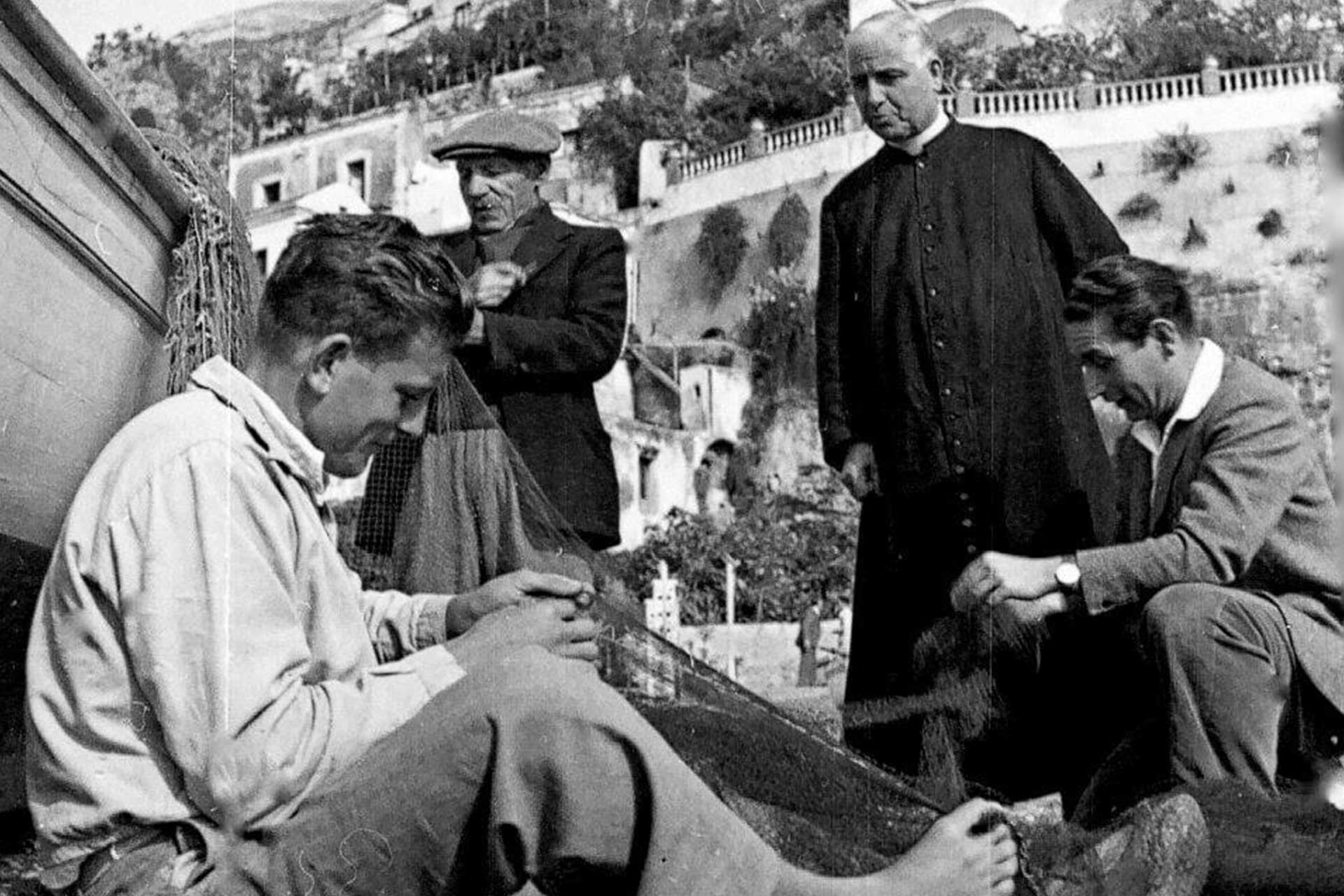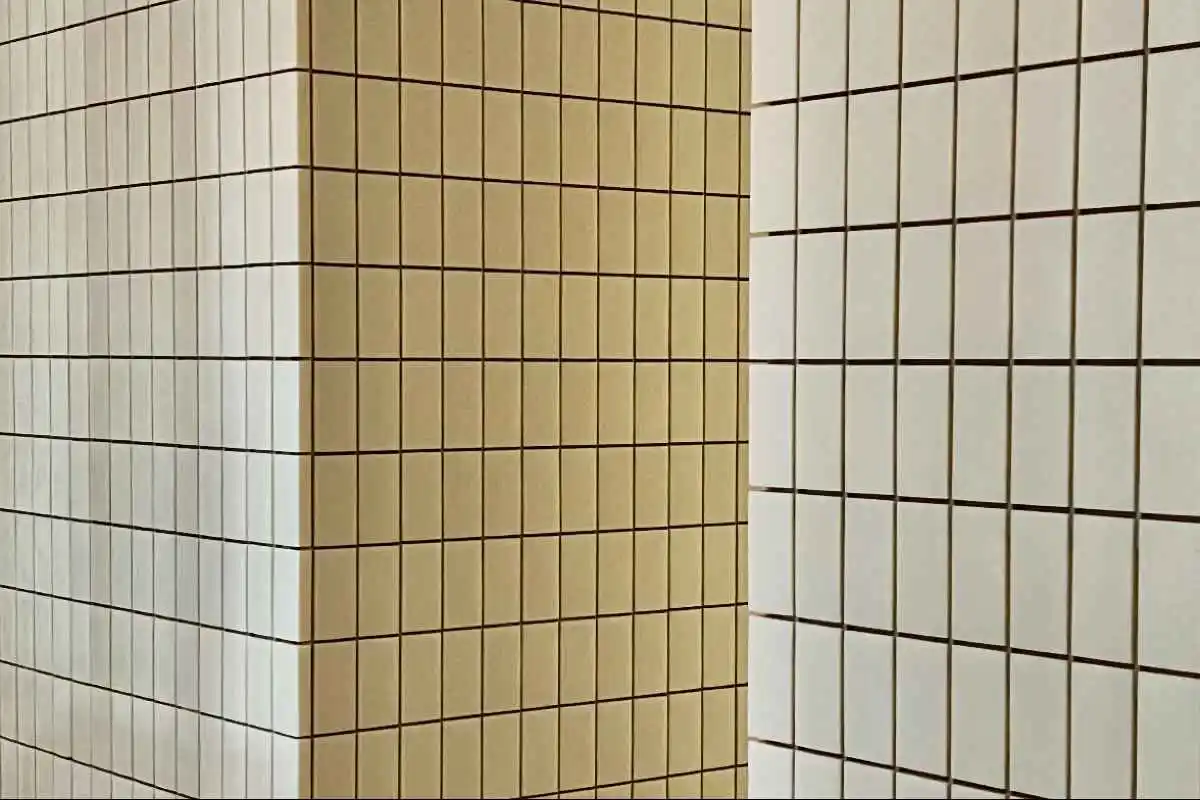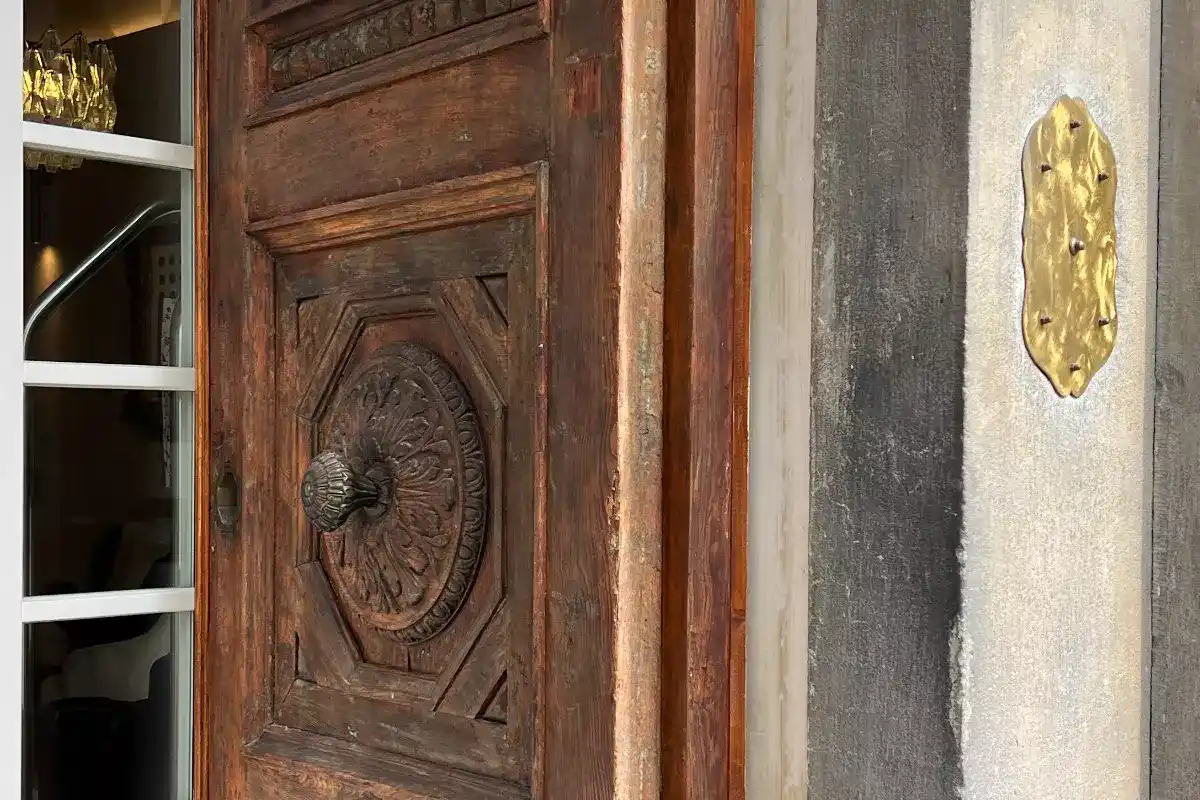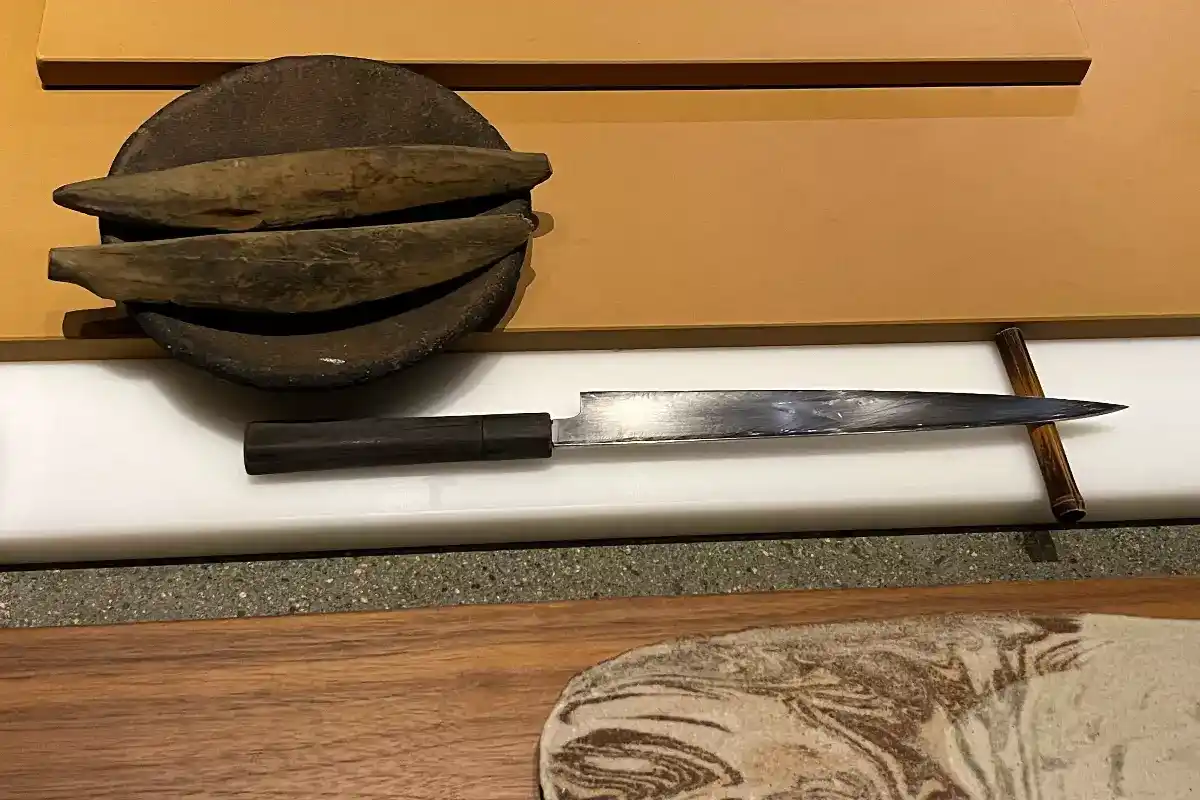During the Second World War, the Sersale family moved from Naples to Positano to avoid the bombings, making Villa Giulietta their summer abode
Le Sirenuse’s historical background
Seeing the upsurge of tourism and demand for places to lodge, the Sersale family decided to convert their summer villa into a hotel, and opened Le Sirenuse seventy years ago. The structure was characterized by twelve rooms and a terrace facing the sea. Suspended on a cliffside in Positano, painted in ox-blood-red with white trim, Le Sirenuse commands the views of the island of Sirens, tumble of pastel-hued village houses, the dome of the church of Santa Maria Assunta embellished with maiolica tiles, and the Mediterranean Sea scintillating before you.
It was in the year of 1951 when four Neapolitan siblings inherited Villa Giulietta in the ancient fishermen village of Positano. They fell heir to the property, belonging to their estranged cousin, who lived in the villa with a divorced woman, after being atoned for his sins. He, therefore, decided to gift the sea-facing home to his four cousins: Aldo, Anna, Franco, and Paolo, in the absence of an heir of his own.
During the Second World War, the Sersale family moved from Naples to Positano to avoid the bombings, making it their summer abode. Positano was, in fact, a rest camp for the British regiment. «After the war, the soldiers brought back their wives to show them where they’d been, and to appreciate the scenic charm of Positano. That’s what stirred tourism in this little village as we know it today», says Sersale.
Le Sirenuse in Positano
This image of the Amalfi coastline attracts about five million tourists each year, making Positano a sought-after holiday spot. A destination within a destination, the cultured atmosphere of a private home makes Le Sirenuse a refuge for those looking to avoid the hoard of day-trippers along the bustling coastline. This seventy-year-old hotel seduces guests with a flirtatious combination of Italian stravaganza, beguiling views, and la dolce vita drama.
The scent of citrus trees lingers on the balmy air. From the hotel, a flight of steep stairs through Via Dei Mulini brings you to the beach. A boat to Capri for the day, or lunch at the neighboring village of Ravello, can also be organized from here. Villa Giulietta, now extended to adjacent buildings, was once the seaside residence of the Sersale family. The expansion of the hotel from twelve to fifty-eight rooms spanned over twenty years. «We are boxed in from all our neighbors with no more space to grow». In the past years, the improvement and refurbishment of the different sections of the hotel were at the center of the family’s attention. The aim was, in fact, to keep pace with the changing times. «The meeting room became a disco overtime, and from the disco, I turned it into a spa», says Sersale.
The Sersale family
The Sersales identify themselves as adoptive positanesi. Originating from Naples, the family belongs to an aristocratic lineage, having been a part of the ebb and flow of the ancient city. In the eighteenth century, Cardinal Antonino Sersale was the city’s archbishop for more than twenty years. He was also nearly elected pope in 1769. The distinct personas of the generation of the founding four – Aldo, Anna, Paolo, and Franco – delineates through the different aspects of the hotel.
Aldo, the eldest, was the flamboyant head of the hotel. «In my youth, I remember that this very charming uncle would go on his boat filled with gorgeous women. He, in fact, was the heart and soul of the hotel». While, Anna, the elegant and progressive, had a penchant for traveling and adored dogs. «She never married, nor had children. Her joy was to go see her friends around the world and eventually host them in Positano».
Paolo was an intellectual and a connoisseur of antiques. He was also the mayor of Positano for a brief period. «During his tenure, he became close to General Clark who donated war surplus to Positano». Franco, Sersale’s father, was an engineer and worked abroad before returning home to join his family’s hospitality business.
Franco’s son, Antonio Sersale, and his wife Carla are currently co-owning and managing the structure. The couple runs the hotel with a mix of femininity and Swiss-trained efficiency. Born to globetrotting parents, Sersale spent a part of his childhood as an ex-pat in Mexico as well as in the Middle East. «I went to boarding school in Iran during the Shah’s regime as my father lived there during that time». After graduating in hotel management from Lausanne, Switzerland, Sersale went on to join Le Sirenuse in 1993.
Lampoon Review: Le Sirenuse’s hotel interiors
An assortment of family heirlooms and objects collected through travels occupy the interiors. Franco Sersale was responsible for leading a major refurbishment project in the hotel in the nineties. «My father was vigorous in his design. He made sure that all the furniture and art were in conversation with the prevailing architecture, creating a visual symphony while integrating the two cultures».
Hand-picked antiques, paintings, curios, and memorabilia from Naples are juxtaposed with the existing Moorish architectural elements. A Neapolitan tallboy adorned with a model of a sailing ship dated 1662 made by a prisoner. Framed passport issued in 1754 to a member of the Sersale family who was the king of the Two Sicilies. A seventeenth-century nativity diorama intact in its original frame. «I love the antique printed maps of Naples and its bay. We also have one of them in ancient Greek script on display». In the past years, Sersale has collaborated with contemporary artists, such as Martin Creed, Stanley Whitney, and Matt Connors, to make on-site specific artworks and installations.
Large indoor planters punctuate the antiquated interiors. Guilia – Searle’s cousin, known for her green thumb – has decorated the property with ornamental plants. You can find more plants than people at this hotel. All of them are displayed in beautiful terracotta pots, which are made especially for the hotel by two sister ceramists who live in Naples.
Le Sirenuse’s rooms
Le Sirenuse’s logo depicts two mermaids holding the villa. «The logo has a representation of the ancient island of Sirens, which also lends itself as the core concept of the hotel. Therefore, the name Sirenuse», Sersale adds. The fifty-eight rooms are individually furnished and different from the next. They come adorned with hand-painted Vietri tiles, ornate gilt mirrors, antique chest of drawers, white vaulted ceilings, and a terrace with the gleaming sea view.
The rooms are curated and envisioned by Franco. «He would choose a theme for each room and follow it throughout the interiors. Such as embroidered hand fans or flowers prints. Pompeii represents the source of inspiration for one of them, with wallpaper prints and artifacts from there».
Le Sirenuse’s saga is exuding with anecdotes that reflect the stories of the many lives inside of its walls. «The filming of Only You with Robert Downey Jr., for example, took place here in the early nineties». Further, in-house Eau d’Italie products, made by Sersale’s sister, Marina, characterize the bathrooms in white tiles, marble, and gleaming chrome.
La Sponda, Le Sirenuse’s restaurant
The hotel’s restaurant, La Sponda, is as old as the hotel. The flickering of the candle lights, bougainvillea-clad dining room, and the serenading tunes of live instruments make this a quintessential romantic offering. Characterized with alfresco seating, the guests can catch a three-sixty view of the sun-soaked Positano village from here. Two old-timers perform Neapolitan classics on guitar and mandolin. «The musicians have been working with us for twenty years and are a crucial part of the restaurant’s vibe».
During the cooler months, the restaurant opens its magnificent indoor dining hall illuminated with four hundred candles, hand-lit by the staff each evening. Chef Gennaro Russo crafts into thoughtful plates the produce plucked from the sea and surrounding hinterland. After having worked in Michelin-starred restaurants in Paris, the thirty-three-year-old-chef returned home and joined La Sponda.
Born in the village of Somma Vesuviana – treasured for its fertile land endowed with volcanic ash – Russo grew up amidst high-quality produce. «His culinary journey started at an early age and his style commands the ingredients to shine in every dish. Gennaro’s dishes bring together distinct flavors – like an orchestra – where each musical note expresses itself». Some of the menu signatures include sea bass with candied lemon, chestnut ravioli with white truffles, amberjack fish with grape jam, aubergine parmigiana, and grilled octopus. Finally, a light-as-air hot lemon soufflé ends the meal.
The three bars: Franco’s, Aldo’s and Don’t Worry
The hotel boasts three-bar offerings: Franco’s, Aldo’s and the Don’t Worry Bar. Suspended above the sea, Franco’s bar is the place for a sundowner in Positano. Positioned as a streetside bar, the drinks here feature a spectrum of colors to blend with the candy-hued sky. Dipinto di Blue, Yellow Pearl, Green Eyes, and Purple Haze, to name a few.
The menu consists of classic tipples and craft cocktails curated for the bar. Franco’s fizz, a summary concoction, whose bergamot, lemon, and almond notes pay homage to the heady flavors and cultural cross-fertilization of Positano, and the Mediterranean basin. A giant seventy-year-old-lemon tree serves as the centerpiece at Franco’s. «Our gardening team traveled to Sicily specifically to choose it from a renowned lemon tree nursery near Messina», he adds.
The thought of opening Aldo’s Bar dawned upon Sersale and his wife while on a vacation in Paris. Started as a romantic bar concept, Aldo’s has evolved into Aldo’s Cocktail Bar and Seafood Grill. The decor here features a vine-strung patio and outdoor wicker chairs designed by veteran architect Lorenzo Mongiardino. «My father worked closely with the Italian furniture brand, Bonacina, established in 1889».
The inspiration for Don’t Worry Bar comes from an installation placed at the entrance by British artist Martin Creed, which says: Don’t Worry. Interior designer Annalisa Bellettati restored and restyled Le Sirenuse’s original bar in 2020. Its position adjacent to the restaurant makes it a pre or post-dinner pitstop bar.
Other services and facilities
The wellness services at the hotel include a pool, spa as well as a gym. Designed by Italian architect Gae Aulenti, the spa provides clients with a soothing experience. Inside the spa, there are a sauna, a granite steam bath, and an ice room – an atmospheric space with a ground ice cascade, illuminated by backlit crystal onyx walls. Massages, aromatherapy rituals, body rehydration and detoxification as well as restorative eyes therapies take place here.
The section only uses AVEDA products and treatments, inspired by ancient Ayurvedic ideas and practices. The hotel’s poolside is endowed with scented geraniums and a variety of lemon trees. Breakfast is served adjacent to the pool terrace, filled with the whiff of warm ricotta-filled sfogliatelle. Homemade granola, buffalo milk yogurt, smoked tuna, and fresh mozzarella feature the menu. Made-to-order hot choices are served under silver cloches.
The calendar of regular activities offers guided walks in the hills, visits to a limoncello factory, or to the local fish market with the chef. Excursions to Capri, Pompeii and Herculaneum, Vesuvius and Naples take place. Carla Sersale’s inspiration is channeled into various business ventures, including her lifestyle brand, Emporio Sirenuse. The boutique sells everything you need to fit in with the Amalfi Coast look.
Before the pandemic, the hotel catered mostly to international patrons. Commenting on the change of scenario post-Covid, Sersale adds, «markets open and markets close. Our client base has chained. Last year we had no Americans and only Britishers. While, this year the Britishers have to do a quarantine if they want to come, but the Americans are back. Further, the Italian and European markets are quite strong at the moment».
Le Sirenuse
Via Cristoforo Colombo, 30, 84017 Positano
Le Sirenuse is a boutique hotel in Positano, founded and run by the Sersale family. An escape in the heart of the Amalfi Coast, Italy.




















